The high-tech potato growing model, coordinated by PepsiCo , Syngenta and partners with farmers and cooperatives in Que Vo town, Bac Ninh province, has created outstanding productivity, averaging 23-26 tons/ha, with some areas reaching 36-40 tons, 2-3 times higher than traditional potato growing methods.
On the morning of March 14, in Bac Ninh, the PPP working group on vegetables and fruits and the Secretariat of the Partnership for Sustainable Agriculture Development in Vietnam (PSAV), the Ministry of Agriculture and Environment held a conference to realize the food innovation network plan in Vietnam (FIH-V) in 2025 and the potato harvest festival.
High-tech potato cultivation for superior productivity
In the drizzly, humid weather, nearly 300 farmers and delegates directly visited the model of sustainable potato production linkage, farming towards reducing emissions and applying high technology and participated in the potato harvest festival at PepsiCo Academic Center, Que Vo town, Bac Ninh province.

Mr. Doan The Anh (third person from the left) in Yen Lam Quarter, Bang An Ward, Que Vo Town, Bac Ninh Province said: "Normally, growing potatoes in the traditional way only yields 15-18 tons/ha. This year, I applied high technology to grow potatoes, the yield was up to 36 tons, in some areas it reached 40 tons/ha." Photo: Khuong Luc
With a scale of 10 hectares, this is a "model" potato growing model that applies high-tech solutions and cultivation towards reducing emissions. Instead of growing potatoes according to the traditional "shallow plowing, flood irrigation" model, the PepsiCo Academic Center has guided farmers and cooperatives to deploy a series of new solutions in potato cultivation.
Specifically: Solutions to ensure soil health; comprehensive pest management solutions; precision irrigation systems, fertilization techniques through fertilizer injection systems; weather monitoring devices that connect software directly to smartphones; using drones to monitor the process from planting to harvesting and spraying pesticides...
Thanks to the application of this new production model, local people not only reduce labor and care but also increase productivity, quality and ensure that harvested potatoes do not contain pesticide residues, meeting the processing and consumption needs of domestic people and businesses as well as exports.

Along with the application of high technology, potato harvesting is also mechanized, helping to reduce labor and increase economic efficiency. Photo: Khuong Luc
Talking to Dan Viet reporter, Mr. Doan The Anh in Yen Lam Quarter, Bang An Ward, Que Vo Town, Bac Ninh Province said that the potato growing model applying high technology and mechanization is very effective, far superior to the traditional farming methods of farmers.
"Normally, growing potatoes in the traditional way only yields 15-18 tons/ha. This year, I applied high technology to grow potatoes, and the yield was up to 36 tons, and in some areas it reached 40 tons/ha," said Mr. Anh, adding that the investment cost for growing 1 hectare of potatoes using high technology is about 200 million VND.
According to Mr. Anh, although the initial investment is high, in return people save costs on water, fertilizers, and pesticides while potato productivity increases dramatically. Thanks to that, the efficiency of this high-tech potato growing model is very high, minus costs, profits increase by 30-40%.
Mr. Nguyen Thanh Tuan - Director of External Relations and Sustainable Development of Syngenta Vietnam Company assessed that the sustainable potato production project model does not only stop at increasing output, but more importantly, it helps farmers cultivate more effectively with fewer resources, while minimizing the impact on the environment.
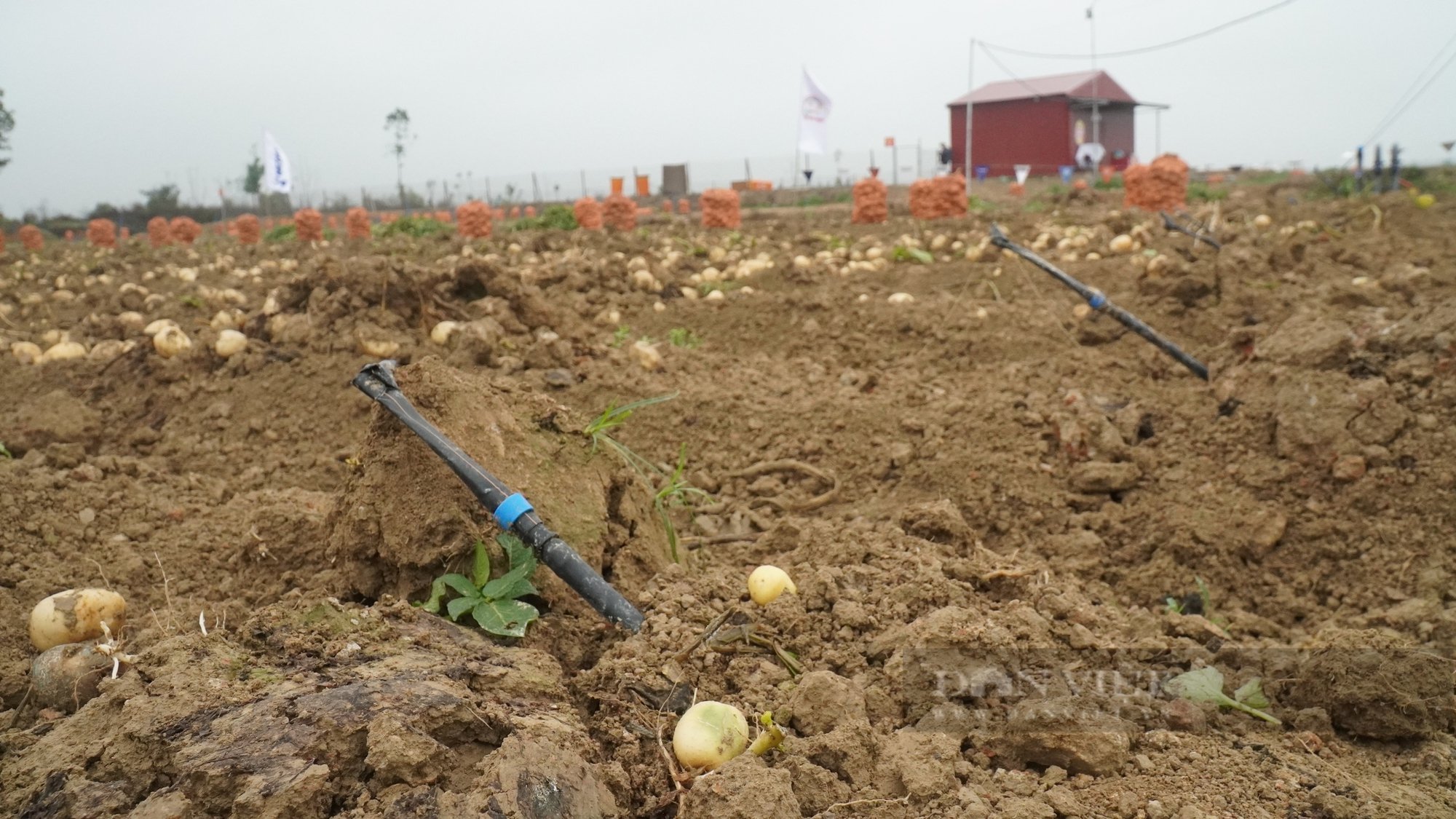
The application of precision irrigation systems and fertilization techniques through the fertilizer injection system has helped increase potato yields and reduce fertilizer use. Photo: Khuong Luc
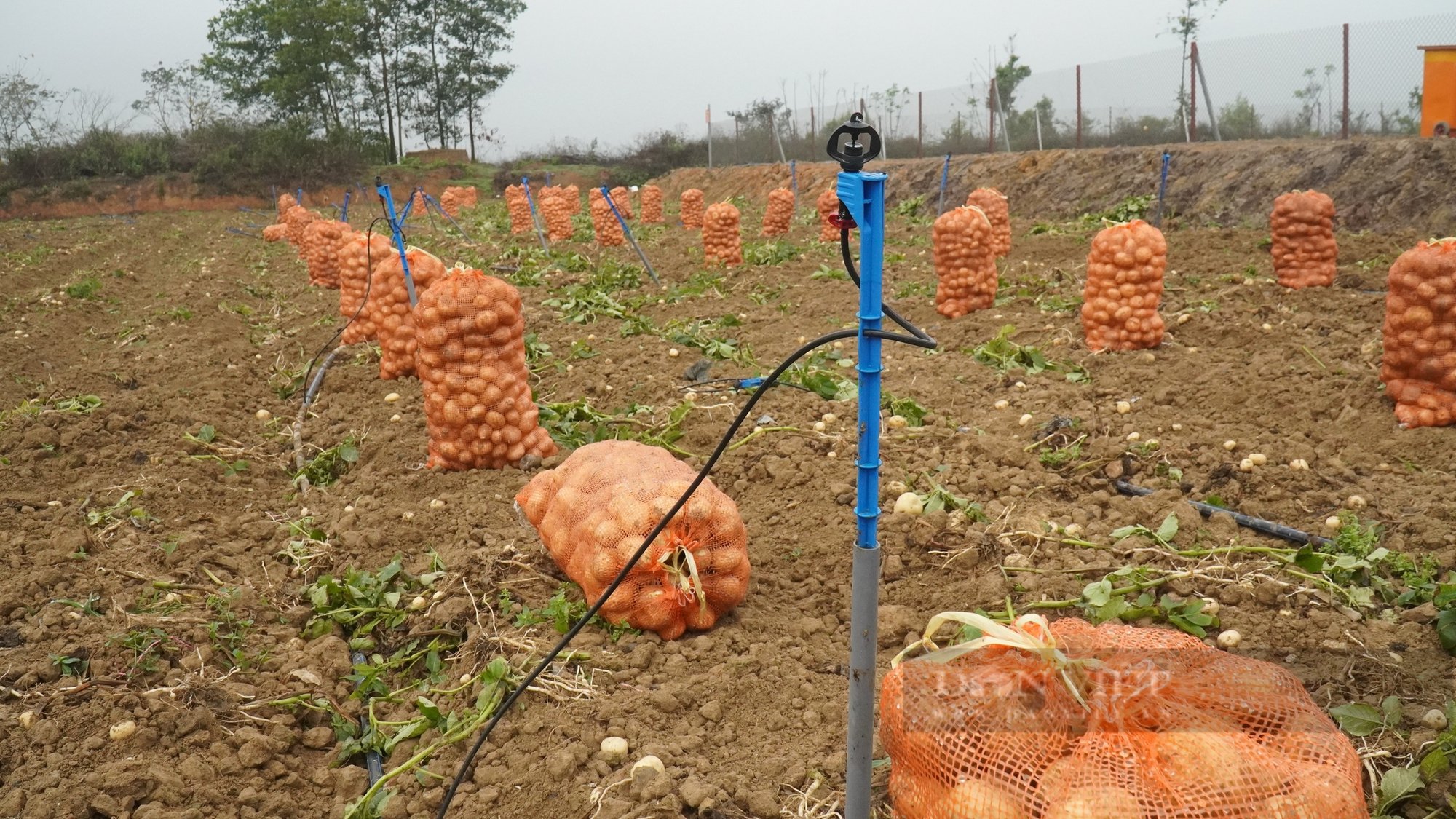
Thanks to the application of a precise irrigation system, 3,170 m2 of water/ha can be saved. Photo: Khuong Luc
The PPP Working Group on Fruits and Vegetables and the Secretariat of the Partnership for Sustainable Agriculture Development in Vietnam (PSAV), Ministry of Agriculture and Environment, informed that since 2019, the sustainable potato production project implemented by PepsiCo, Syngenta and partners National Agricultural Extension Center, Yara, Netafim_Khang Thinh, Novacid, Mimosatek, Viettransco, Duc Minh, USAID-Resonance - GDA project and She Feeds The World (SFtW) Project of CAREVN in the Central Highlands has brought outstanding results.
From the initial area of 400 hectares, after 5 years - in 2024, it has reached nearly 1,700 hectares, with an average yield of 30-34 tons/ha, much higher than traditional farming methods. This success is the premise for the partner group to expand the model to the northern provinces from the 2024-2025 Winter-Spring crop, with a total area of 320 hectares.
As a result, after just the first crop, the average potato yield reached 23-26 tons/ha, 8 tons/ha higher than previous crops. Production costs were also reduced thanks to the application of a precision irrigation system that saved 3,170 m2 of water/ha, a set of pest management solutions that reduced the need for spraying pesticides by 2 times/crop, and the use of drones that reduced the amount of water used to mix pesticides by more than 10 times.
Previously, the pilot model of the 2023-2024 Winter-Spring crop in Thanh Hoa and Hai Duong provinces also achieved outstanding results, with the highest yield of 35 tons/ha.
Public-private partnership to build a sustainable potato value chain
Currently, the potato production in Vietnam only meets 30-40% of domestic potato demand, most of which must still be imported from Australia, the US, Germany, the Netherlands, and China. In 2023, Vietnam will be the leading importer of fresh potatoes in the Asia-Pacific region, worth more than 134 million USD.
Mr. Nguyen Viet Ha - General Director of PepsiCo Foods Vietnam Company said that in the third quarter of 2025, the company's processing plant with an investment capital of 90 million USD will come into operation. Therefore, the company wants to be self-sufficient in domestic potato sources to meet the demand for processing and export.

Mr. Le Quoc Thanh - Director of the National Agricultural Extension Center; Mr. Nguyen Do Anh Tuan - Director of the Department of International Cooperation (Ministry of Agriculture and Environment) and partners inspected the potato field in Que Vo town, Bac Ninh province. Photo: Khuong Luc
PepsiCo Vietnam Foods General Director Nguyen Viet Ha hopes to cooperate with farmers and cooperatives to build and form a potato material area in the North. The company commits to purchasing all products and coordinating with partners to supply seeds, fertilizers, pesticides, and even coordinating with banks to provide finance to provide maximum support for farmers and cooperatives participating in the model.
According to Mr. Ha, PepsiCo's Pep+ Strategy aims to achieve the goal of developing regenerative agriculture on 7 million hectares of land, improving the livelihoods of 250,000 people in the agricultural production chain by 2030, while reducing greenhouse gas emissions in agricultural production.
Speaking at the conference, Mr. Nguyen Do Anh Tuan - Director of the Department of International Cooperation (Ministry of Agriculture and Environment), Director of the PSAV Secretariat expressed his impression of the sustainable potato production - consumption linkage model which not only helps potato productivity increase 3 times compared to traditional methods but also helps increase farmers' income nearly 3 times.
Highly appreciating the effectiveness of the model, Mr. Le Quoc Thanh - Director of the National Agricultural Extension Center said that in the coming time, the unit will coordinate with partners to integrate technical packages for sustainable potato cultivation into a set of guidance documents, aiming to expand the model, apply advanced technology and create sustainable value for the Vietnamese potato industry.
Established in 2010 under the initiative “New Vision for Agriculture” and the 20-20-20 target (increase productivity by 20%, reduce poverty by 20%, reduce emissions by 20%), PSAV affirms its important role in mobilizing investment resources, applying science and technology, effectively and sustainably developing the value chain of Vietnam's key agricultural products in the form of Public-Private Partnership (PPP).
Currently, PSAV has 8 PPP Working Groups, of which the Vegetable and Fruit PPP Group chaired by the National Agricultural Extension Center (public sector), along with PepsiCo Foods Vietnam and Syngenta Vietnam (private sector), has implemented an innovative model for potatoes, aiming to increase productivity, reduce negative impacts on the environment and improve farmers' income.
Source: https://danviet.vn/trong-khoai-tay-ung-dung-cong-nghe-cao-nong-dan-bac-ninh-thu-lai-lon-nang-suat-dat-toi-36-40-tan-ha-20250314164545471.htm


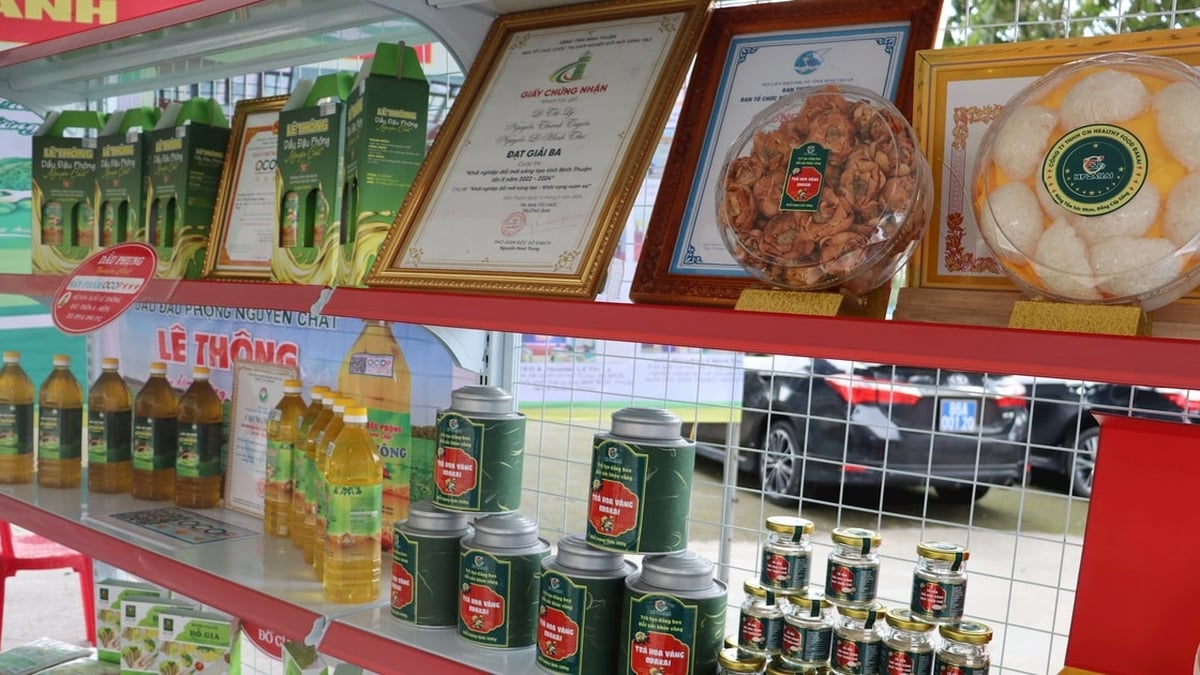
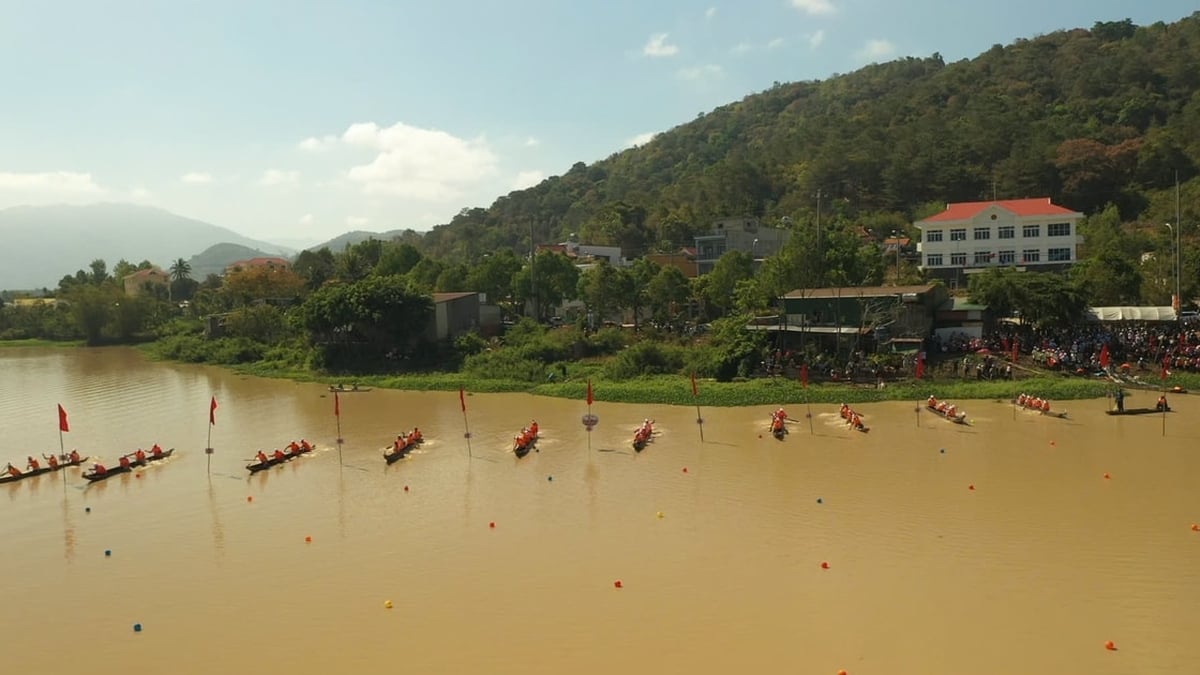


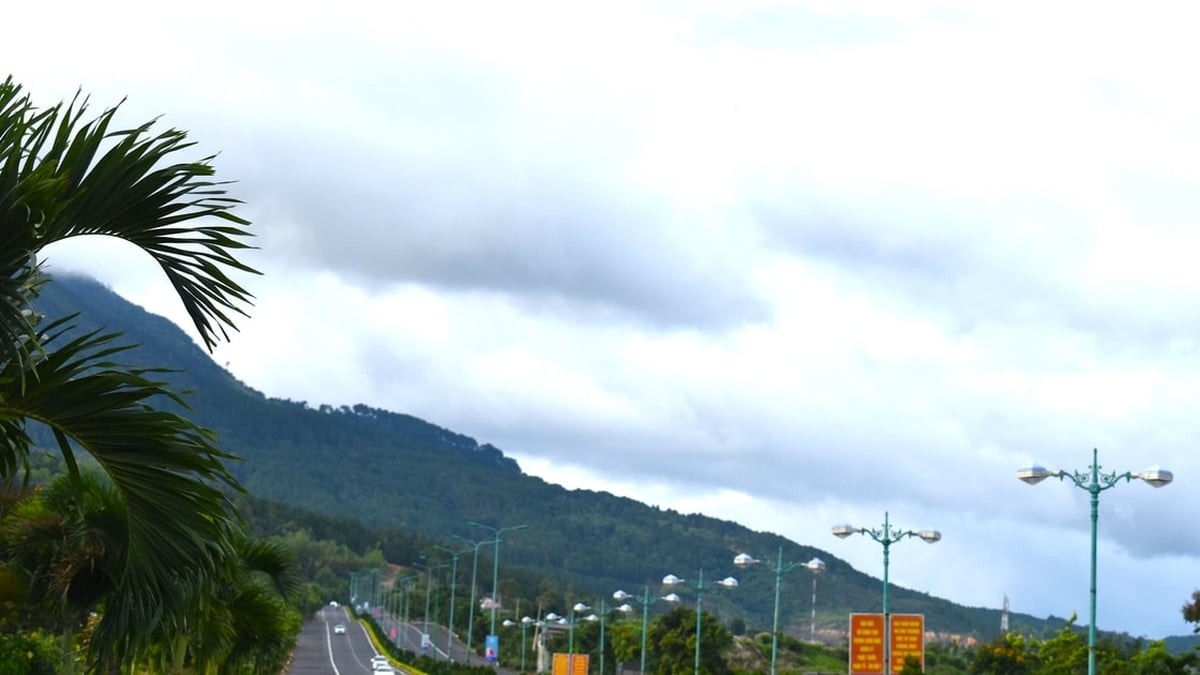

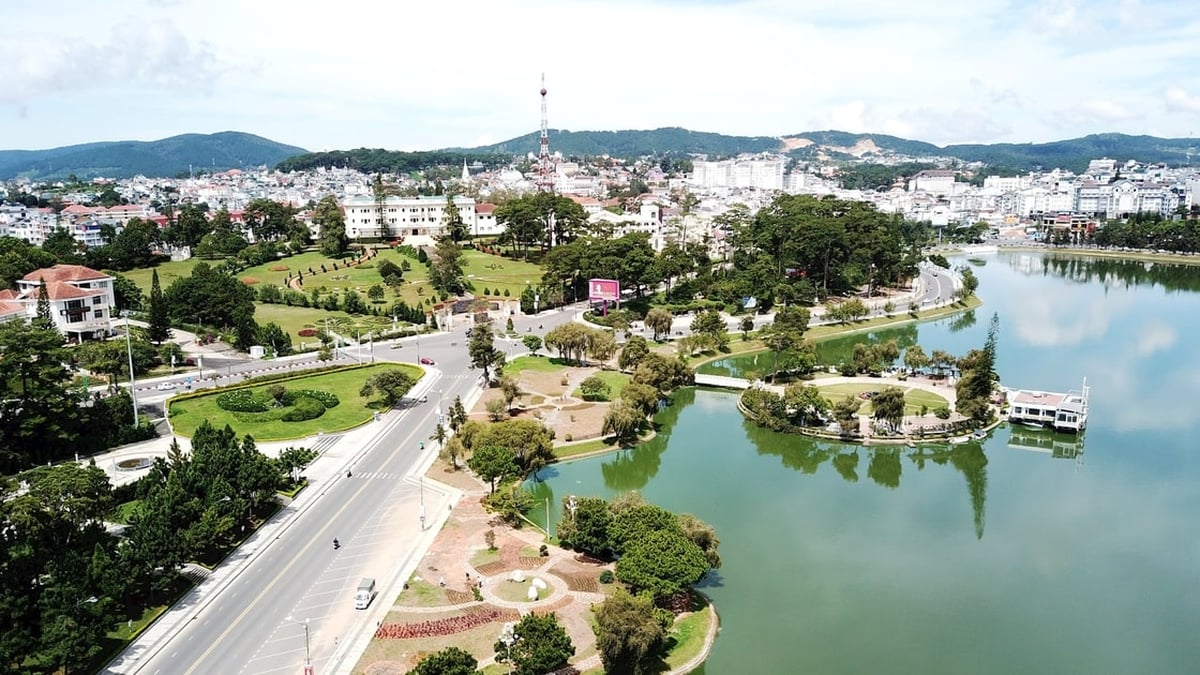

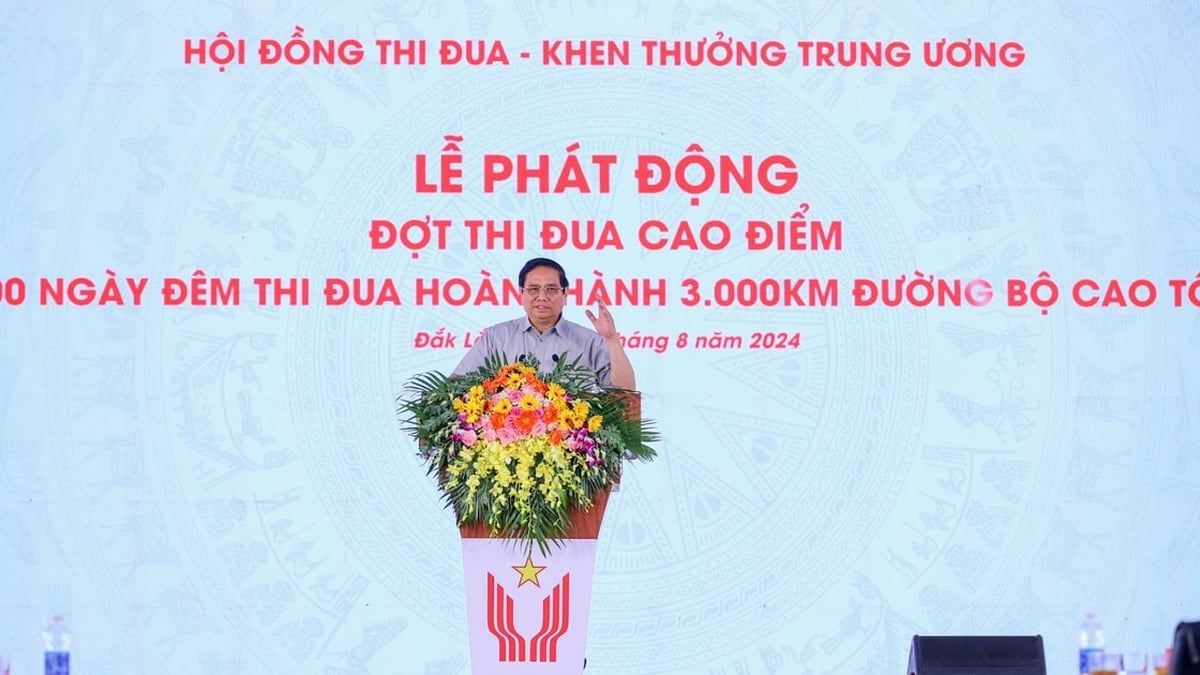
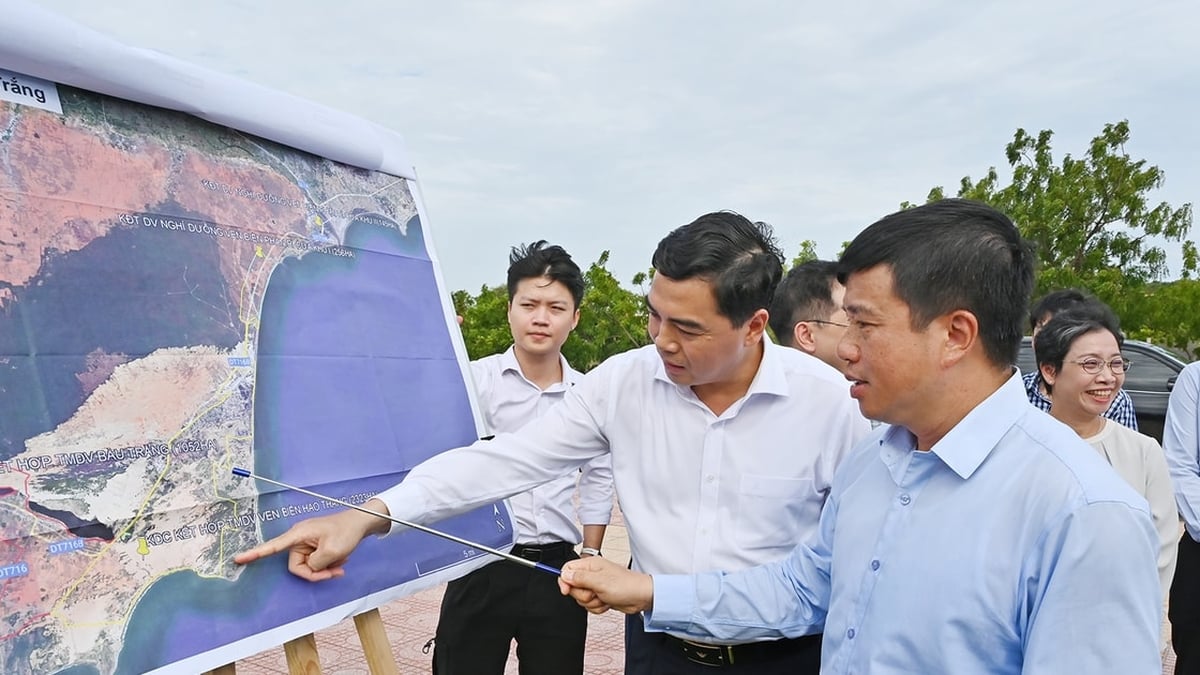























































































Comment (0)